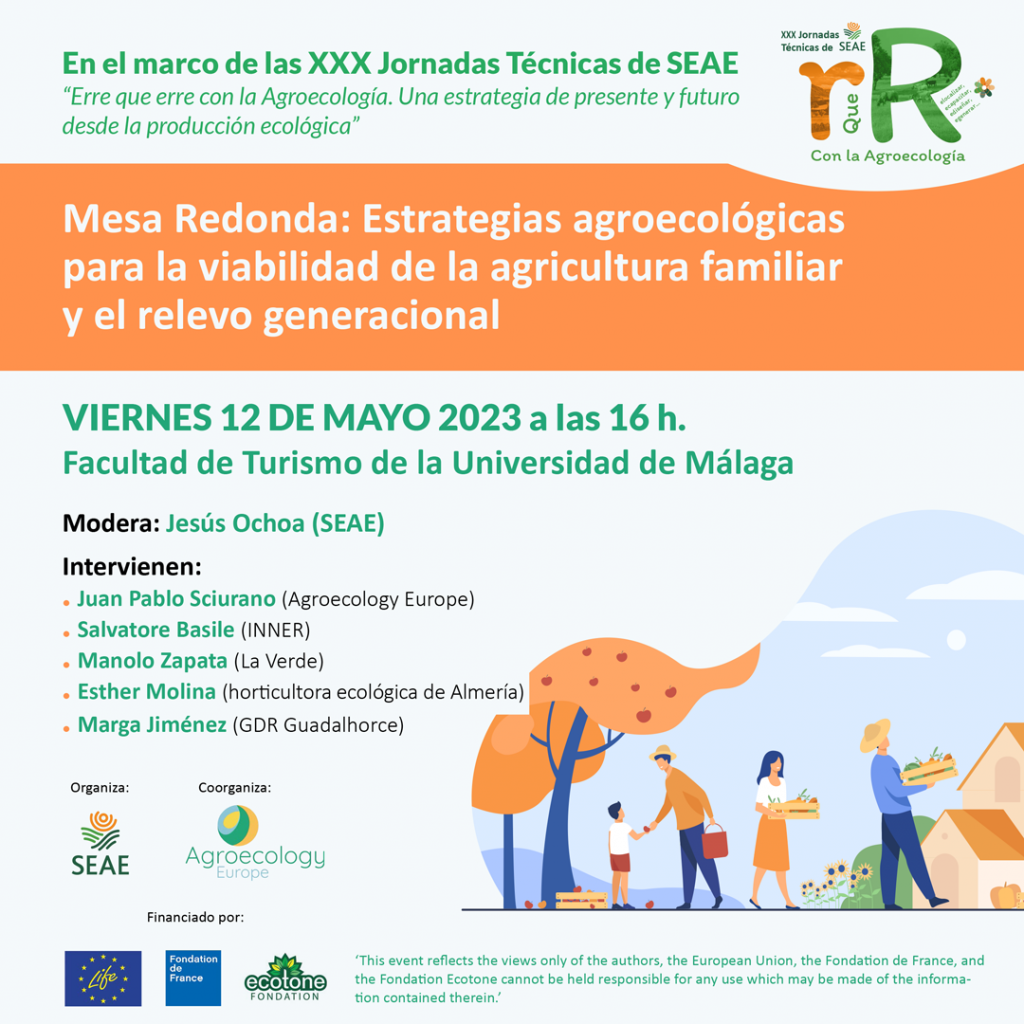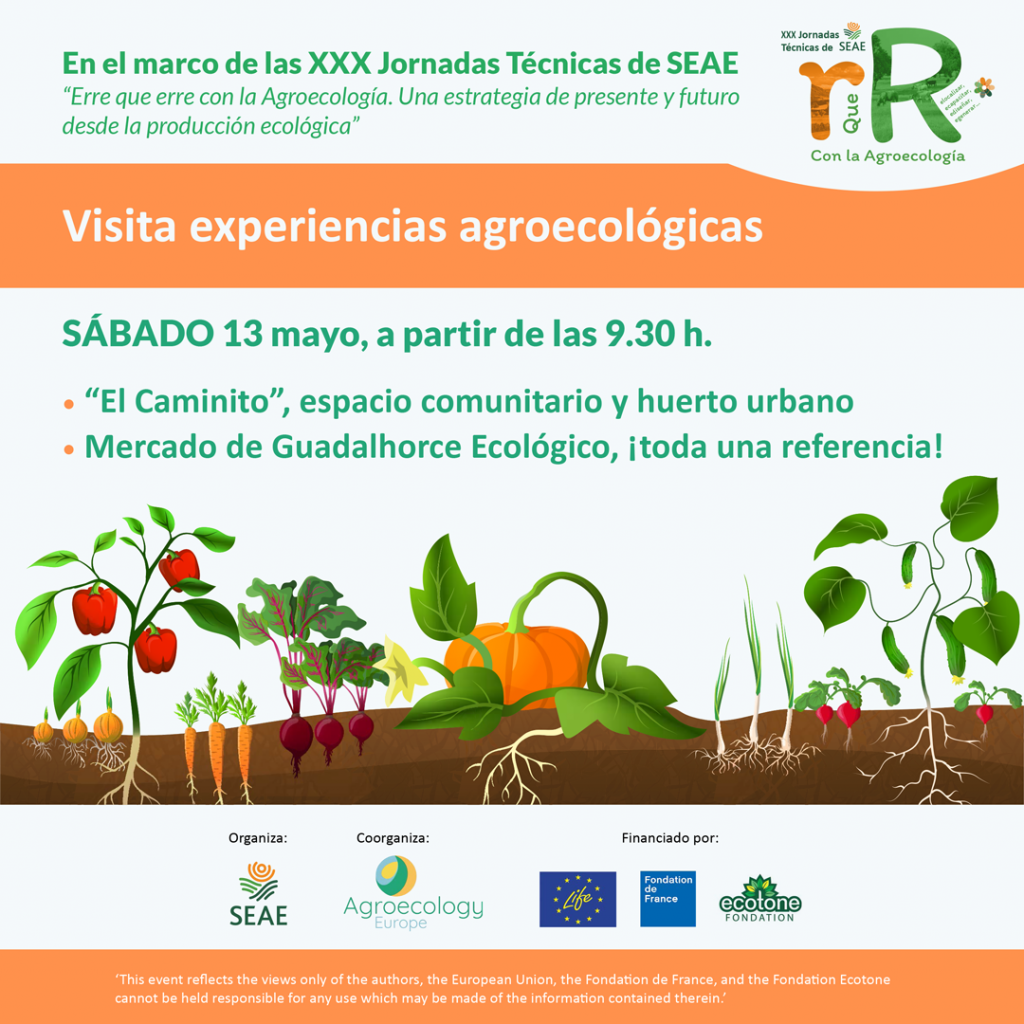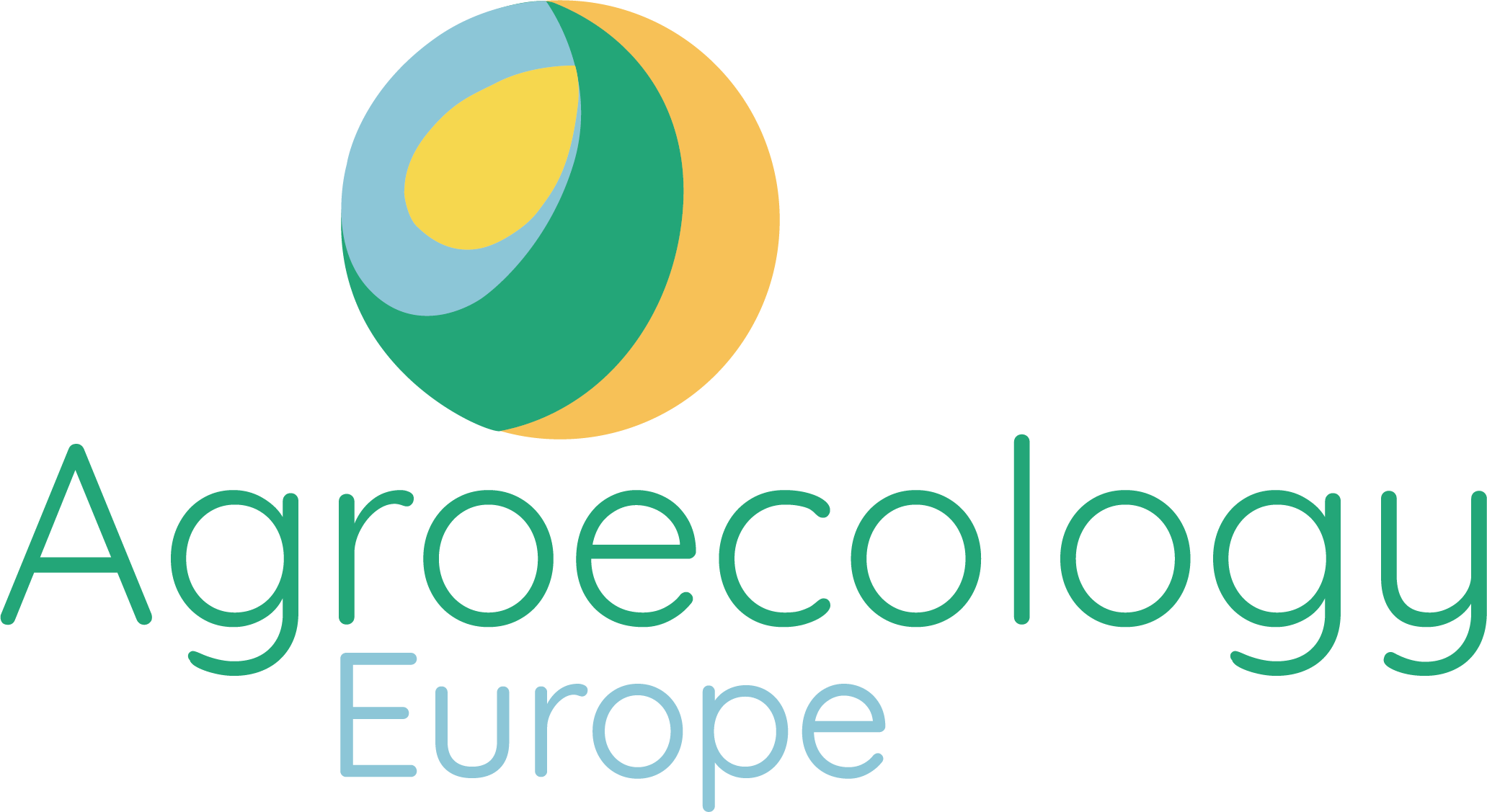On Friday 12 May and Saturday 13 May will take place the first participatory workshop organised by Agroecology Europe ‘s member organisation SEAE (Sociedad Española de Agricultura Ecológica y Agroecología) to discuss how to support family farming and generational renewal in a context of climate change and vulnerability of small and medium-size entreprises. This participatory workshop is organised in the framework of the XXX tecnical days of SEAE at the University of Malaga.
Friday 12 May at 16:00
Roundtable discussion: "Agroecological strategies for the viability of family farming and generational renewal"
Saturday 13 May at 9:30
VISIT of two agroecological experiences


Participatory Workshop description
The changes in rainfall and temperature regimes, the scarcity of water reserves, the loss of biodiversity and soil fertility, the rise in production costs, the difficulties of access to land and the ownership of farms, rural depopulation, the proliferation of macro-farms and renewable energy facilities (both at the hands of large corporations), the disconnection of consumption and production are pushing farmers and small and medium-sized craft businesses to the limit and preventing the generational renewal in the farming sector.
While socio-economic aspects have a similar effect in the whole of the Spanish regions, Climate change consequences are worst in the Mediterranean and Southern areas. According to the Ministerio de Transición Ecológica y Reto Demográfico, the Spanish water reserve is at 44.6% of its capacity and the most dramatic situation is the one located in the basins of the southern half of Spain, which they are at around 30% of their capacity.
50% of agricultural production is currently in a drought alert situation, the production costs in the last year have increased significantly, being the most affected sectors cereals, olive groves, vineyards, rainfed almonds, pastures for extensive livestock and beekeeping, as well as vegetables and fruit trees, including citrus.
Additionally, the latest report published by the National Institute of Statistics, in June 2022, indicates that the risk of poverty in Spain, based on 2021 data, has increased to 27.8%, almost one point more than to 2020, when the risk was 27%. In recent months seems it could be higher than 33%.
In this context, the developement of agroecological initiatives fostered by the youth are crucial in order to develop fairer, safer, healthier, more inclusive and more resilient food systems that are a real option of life for current farmers and for the coming generations.
The aim of the participatory workshop are:
- Promoting networking of local stakeholders as well as with different initiatives that share common goals and needs at National and International level.
- Identifying local strategies that involve local stakeholders through participatory-bottom up processes.
- Sharing successful experiences identified at local, national and international level.
